EAP Mental Health Toolkit
Rachel Reid
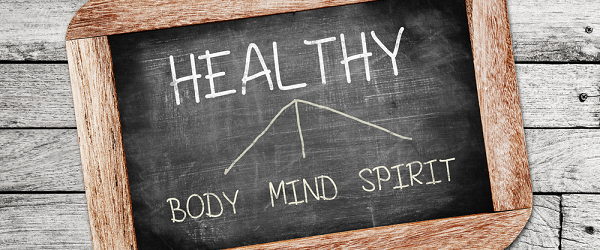
In honor of Mental Health Month, the EAP is offering a Mental Health Toolkit to help you navigate any challenges you may be facing.
What is Good Mental Health?
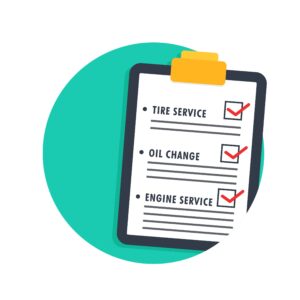
Check-in with yourself:
Take the opportunity to consider how you are doing. A balanced, healthy, and generally positive outlook about yourself is a good indicator that your mental well-being is being nurtured and not experiencing emotional or health related challenges.
Check that you:
- Can enjoy your hobbies and leisure activities
- Find your mood lifted by positive events and interactions
- Do not excessively dwell on negative thoughts
- Feel motivated to care for yourself and others
- Have no significant difficulty concentrating on tasks
You will be the best judge if something feels “off”.
Recognizing Potential Mental Health Problems
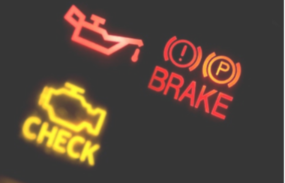
Possible Signs of an Issue:
- A change in overall mood and levels of anxiety
- Reduced motivation in your selfcare
- Lack of interest in things you normally enjoy
- Having difficulty concentrating on tasks
- Increased use of substances such as alcohol to alleviate your symptoms
- Feeling more withdrawn or not “yourself”
- Concerns about your well-being from people you know
What can Contribute to Mental Health Problems?
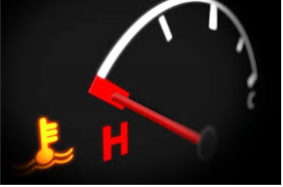
Possible Contributing Factors:
- Enduring extra stress over an extended length of time
- Experiencing discord with family members or friends
- A previous history of these or similar symptoms (with or without a diagnosis)
- Prolonged feelings related to grief or loss
- Unresolved conflict with colleagues
- Unrecognized reactions to some level of trauma
What are Your Roadblocks to Getting Help?
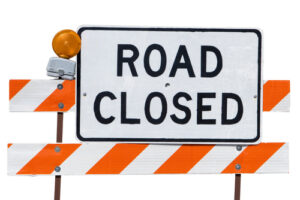
Are you worrying alone and don’t know how to move forward?
Possible Contributing Factors:
- Not prioritizing your own needs
- Not making time due to other competing commitments
- Feeling ashamed for not being able to fix the problem by yourself
- Feeling uncomfortable talking to someone who you feel might not fully understand your situation
- Worrying that seeking help may lead to extra costs
- Challenges finding accessible help locally
What to do when You Need Help

It is ok to get off the road and take a pause in the breakdown lane, even if you do not know what to do and where to go next. Choose help that is on your terms and works for you. As a first step, review your options. Explore the EAP website resources.
- General Mental Health Resources
- Assistance with getting a Referral
- Understanding Treatment Modalities
- Understanding the Therapy Experience
- Assistance for Special Populations
- Wellness
- MGB Well-being resources
- Self-help Resources
Some people may be able to navigate mental health issues on their own. Some examples are below.
Attend or watch a recording of an EAP Well-being Webinar
- If you think you might be experiencing unhealthy levels stress during your day, take 15 minutes to join a relaxation exercise lead by an EAP consultant. If you find it helpful, you can continue to use what you learn to combat some of your stress-related symptoms
- Recordings of various wellness webinars are available to view at any time
Apps & Self-Guided Programs
Free for Mass General Brigham Employees
- Foundations – Koa 360
An app that helps you build the skills needed to manage stress and become more resilient - Headspace
Headspace can be used on your phone for meditation and guided relaxation. You can sign up for a free membership using your work email.
(Link is not supported in Internet Explorer: suggested browsers include Chrome, Firefox and Safari) - SilverCloud
A free online, self-directed course in cognitive behavioral therapy (iCBT) and other well-being activities for BWH employees and household members with
anxiety and/or mild to moderate depression, insomnia or stress, or who are looking for support with building resilience. You can be referred by the EAP or self-refer. Sign-up using the code (MGB2020)
Other Apps (Some may have a fee)
- Calm
- Ten Percent Happier
- Grateful
- Insight Meditation Timer
- Meditation Studio
- One Mind Psyber Guide – Mental Health App Guide
- Simply Being
Contact the EAP via 866.724.4327 or request an appointment via our online form
Some people may benefit from seeking help from a professional. These are individuals who are not noticing enough relief or improvement from some of the self-help options referenced above. It is important to remember that with some intervention, you can feel much better.

Free & Confidential Services for Employees, Physicians, Professional Staff & IHP Students
- Check in with an EAP consultant
-Book some time to confidentially talk over what you’ve been experiencing. No problem is too small or large. Compassionate, skilled counseling is a free resource providing a no judgement environment with a professional trained to help.
- EAP interactions are confidential (except in the case of safety concerns or when written permission is granted to share information)
- Meeting can be via video, phone or an in-person meeting at your nearest EAP office
- Someone can be reached out of office hours via 866.724.4327
- In a non-emergency – call our main number – 866.724.4327 to speak to someone right away
- Initial appointments typically involve a mental health assessment or guidance session
- Based on your needs, the counselor will help you decide if a referral is needed, and if so, make a referral for “in network” provider







